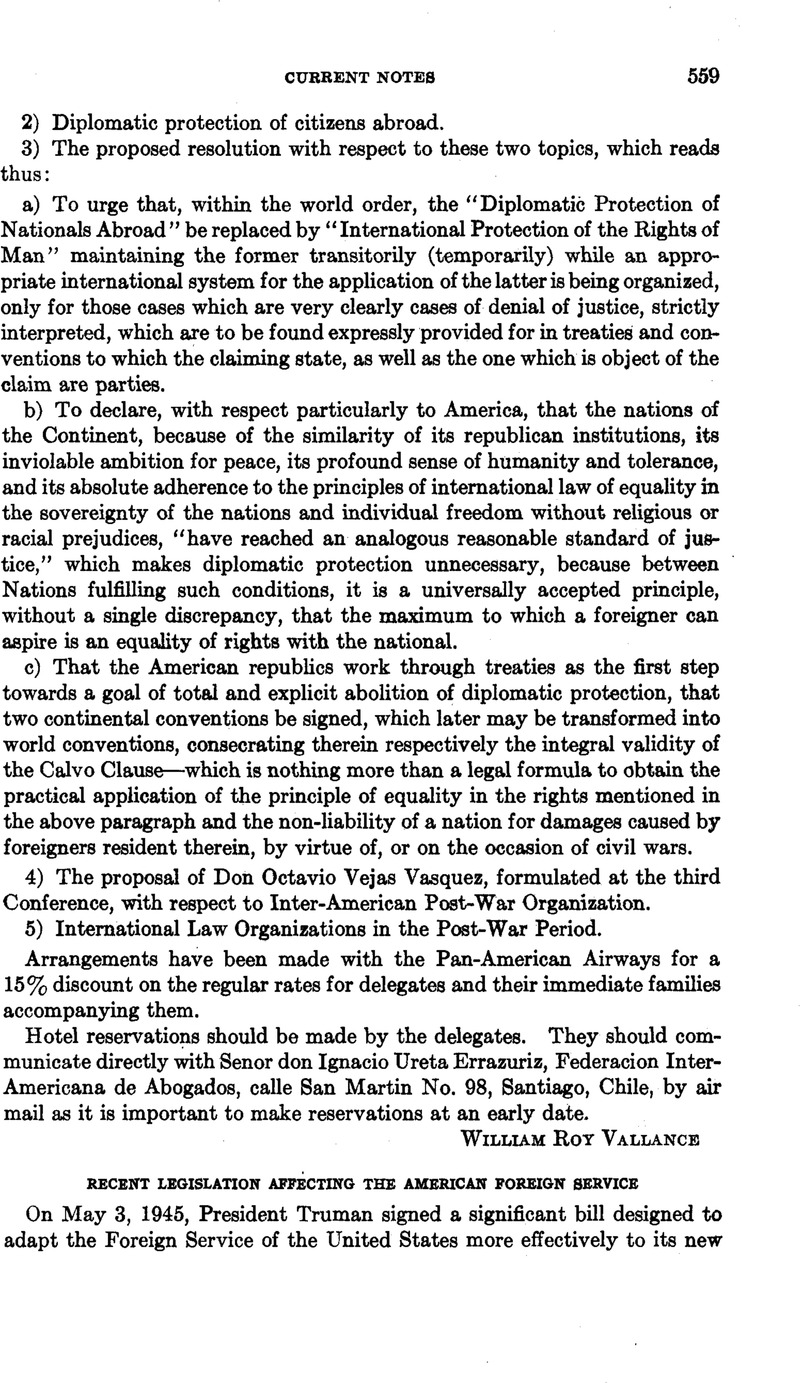No CrossRef data available.
Published online by Cambridge University Press: 25 April 2017

* Public Law 48, 79th Congress. Text below, Supplement, p. 159. This note was prepared as part of a broader study on the American Foreign Service now in process under a grant from The American University, Washington, D. C.
1 Department of State Bulletin, May 20, 1945, p. 939.
2 It is not entirely clear from the wording of the law whether State Department personnel will also have to have had five years of government service before they can be given these temporary assignments to special duty in the Foreign Service. It will be necessary to await a legal opinion to settle this point.
3 Some two hundred additional appointments to the Auxiliary have also been made of younger men who have been deferred from military service for physical reasons, or who have been discharged from the armed services. They have been appointed as junior officers and have been assigned to general consular duties. Counting both the specialists and the junior officers, there was a total of 637 Foreign Service Auxiliary officers on March 1, 1945, as compared with 766 regular Foreign Service officers—which gives some idea of the important role played by the Auxiliary in meeting the wartime need for expansion in the Foreign Service at a time when it was not practicable to offer the regular entrance examinations: Congressional Record, March 27, 1945, p. 2921.
4 Nathaniel P. Davis, “How Promotions Are Made,” in American Foreign Service Journal, August, 1944, p. 407.
5 Department of State Bulletin, May 20, 1945, p. 939.
6 Davis, as cited, p. 408.
7 Departmental Order No. 1314, effective April 1, 1945: Department of State Bulletin, April 22, 1945, p. 777. See also, “Reorganization of the Office of Foreign Service,” by Monnett P. Davis, American Foreign Service Journal, May, 1945, pp. 20-21.